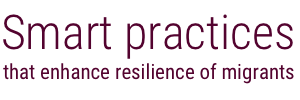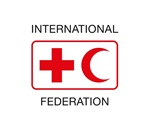This online portal provides relevant information for responses to population movements.
The IFRC has developed an online information management portal to provide relevant information to National Societies in Europe responding to the influx of migrants. The portal was created by the Surge Information Management System (SIMS) and is available online. The portal has eight sections which provide maps, data and interactive dashboards including:
- Response indicator Collects information on what the involved National Societies are doing in terms of response. Information is collected from National Societies on a template sheet with standard questions and then filled online. Twenty-eight countries in Europe have so far provided information.
- Migrant arrivals forecasting. Displays three-day forecasts of the expected number of migrants that will arrive to countries along the Western Balkans route. Arrivals data and an algorithm are used to predict how many migrants a country can expect. Forecasts were set up for Austria, Croatia, Macedonia, Serbia and Slovenia. However, the forecasts have not been heavily used because border closures reduced the numbers of incoming migrants.
- Situation overview Provides a summary of arrival numbers, border controls, and relevant news items for countries across Europe.
- Interactive maps. Maps with hotspots depict areas of intervention and health services; the situation in Greece, including where the Hellenic Red Cross is present, where other actors are present, and the pressure on camps relative to capacity; and the population in Turkish temporary protection centres.
The system also provides external actor data, base maps and infrastructure maps, operations and deployment maps, and weekly response indicator maps.
- Working with the different National Societies is challenging because of the nuances of each context. For example, National Societies have different reporting structures which have to be accounted for in data collection.
- Some National Societies collect data in different units, which makes it difficult to compare data.
- Continually updating the system may not be sustainable.
- It is important to try many different concepts and iterate constantly. Some concepts work while others do not; it is difficult to predict success before testing them.
- Have contacts in the field and regularly ask what they need. Build a system to respond to those needs.
It is important to regularly test and get feedback on new additions to the system.

